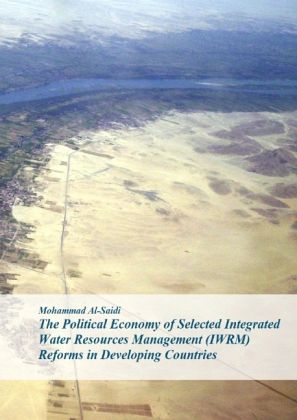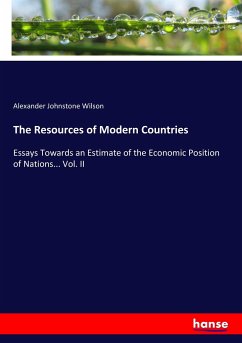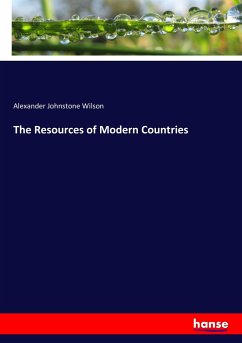
The Political Economy of Selected Integrated Water Resources Management (IWRM) Reforms in Developing Countries
Versandkostenfrei!
Versandfertig in 6-10 Tagen
29,00 €
inkl. MwSt.

PAYBACK Punkte
0 °P sammeln!
Current water governance reforms are often oriented toward the concept of Integrated Water Resources Management or IWRM. Under this concept, water management policies should be more coherent in order to facilitate the integration of roles and responsibilities based on the principle of environmental subsidiarity (institutional principle), the introduction of economic instruments towards greater efficiency (instrumental principle), and the promotion of a basin-wide stakeholder dialogue and collective decision making that ensure sustainability in resource use (ecological principle). This work pre...
Current water governance reforms are often oriented toward the concept of Integrated Water Resources Management or IWRM. Under this concept, water management policies should be more coherent in order to facilitate the integration of roles and responsibilities based on the principle of environmental subsidiarity (institutional principle), the introduction of economic instruments towards greater efficiency (instrumental principle), and the promotion of a basin-wide stakeholder dialogue and collective decision making that ensure sustainability in resource use (ecological principle). This work presents three case studies that reflect real-world implementation of these principles in terms of water policies. It shows that the reality in the case study countries does not match the ambitious reform agenda, because current water management concepts often lack recommendations on country and context-specific implementation pathways. In addition, the underlying conflict between the new sustainable water management paradigm and the old water resources development interests is still persistent in many developing countries. The case studies of which this work is composed cover all three aspects of the water governance reforms under IWRM. The first case study, on decentralization, commercialization and regulation of the Yemenite water sector, relates to the institutional aspect of reforms. It illustrates the importance of considering institutional conflicts, the political dimension as well as the timing issue of reforms. The second case study, on increasing block tariffs, covers the instrumental aspect. Here, this study stresses the controversial nature and multiple objectives of any economic pricing instrument. Different pricing instruments should be weighed against each other and evaluated in regard to their ability to accommodate implementation problems in developing countries. Finally, the ecological aspect is covered by the third case study on formal negotiation models in water sharing conflicts on the level of water basins, using an example from Morocco. This study advocates the use of negotiation support tools based on different approaches and for different purposes in order to facilitate participation and help improve the outcomes of collective decision making in water resources planning and management. With these case studies, this work aims to contribute to the understanding of the political economy of water governance reforms in developing nations.












